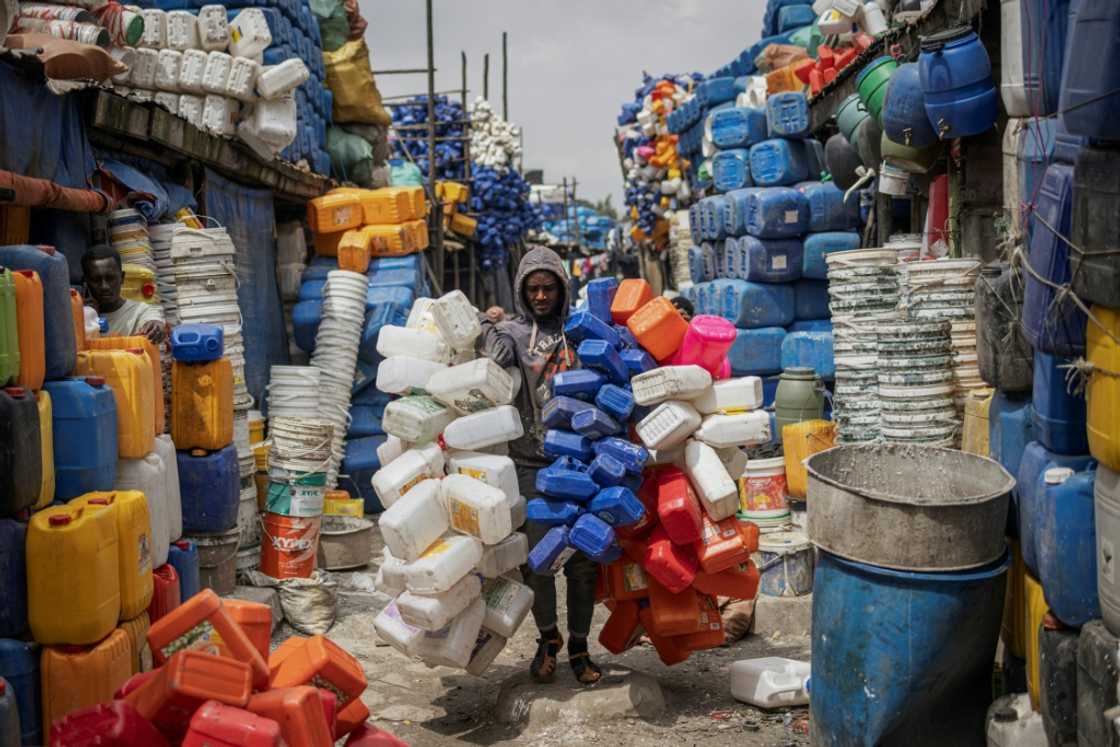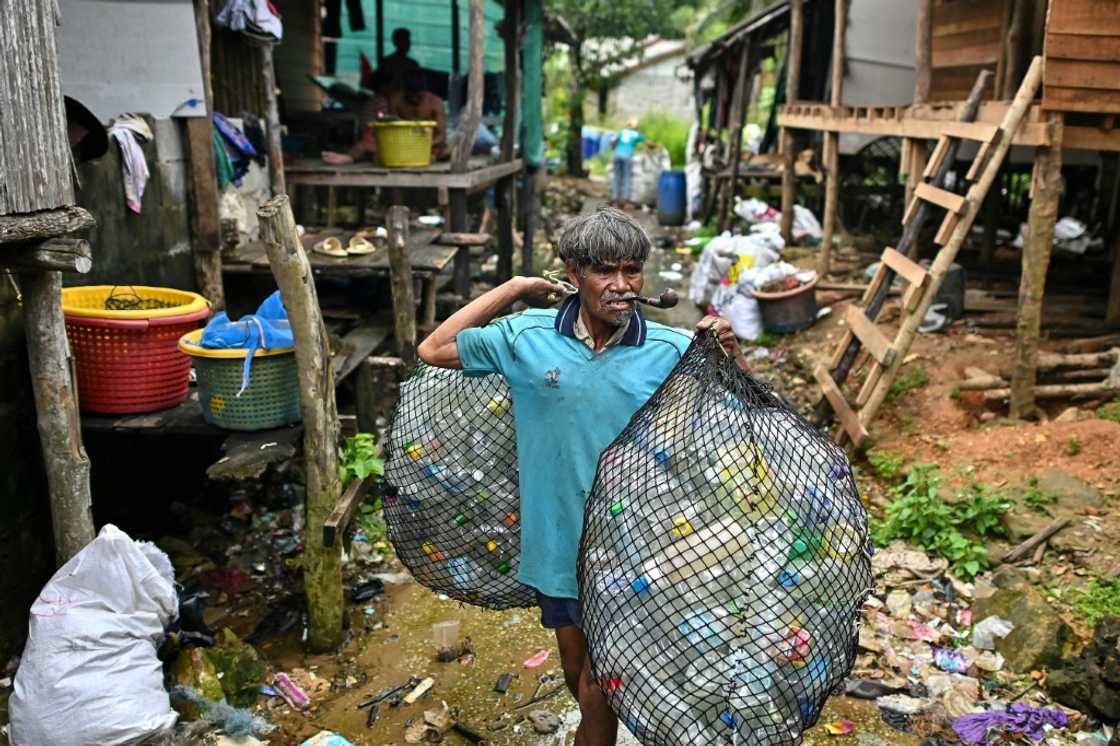Waste pickers battle for recognition at plastic treaty talks

Source: AFP
As diplomats negotiate behind closed doors in Busan on a treaty to curb plastic pollution, the waste pickers who are on the front lines of the problem are fighting for recognition.
Between 20 and 34 million people are believed to work as waste pickers worldwide, playing a crucial role in recovering recyclable material.
"We're the biggest business in the world," 54-year-old Maria Soledad Mella Vidal, a Chilean waste picker, told AFP.
"We don't have money, infrastructure or machinery... but we are extremely proud because our contribution to the environment is real."
Representatives of nearly 200 nations are gathered in South Korea to agree on a landmark deal to curb plastic pollution that litters the planet.
Just nine percent of plastic is currently recycled globally.
But estimates suggest over half of what is recycled is recovered by waste pickers.
Johnson Doe joined the sector at 16 in Ghana's capital Accra.
"There was no formal job around, so the only work to do was to be a waste picker," he told AFP.

Source: AFP
Every day, the 39-year-old waits for waste trucks to arrive at one of the city's dumps so he can collect recyclable items for sale to an intermediary.
He earns three dollars a day on average, "enough to sustain myself", he said.
After more than two decades in the job, plastic no longer holds any secrets for him.
"We can tell," he said, examining a plastic bottle placed before him and rattling off the different plastic components.
"I love this job," he added. "But what we need is integration, respect and inclusion."
'We should be involved'
As observers, waste pickers can sit in on negotiations, but do not have the right to participate despite their direct experience with the problem.
"If there is a discussion... we should be involved," Doe said.
Mella Vidal, the waste picker from Chile, is also an expert on plastics and wants a ban on single-use items, which is under discussion in the negotiations.
She also wants a redesign of plastic products to facilitate recycling, giving the example of the pill strip for the paracetamol she is taking to combat a cold.
"It's PS (polystyrene). It has no value in the market. And on top of that, there's a thin layer of aluminium stuck on top. It's an eco-design problem, like yoghurt pots," she said.
Mella Vidal no longer works at dump sites, which have disappeared with new rules in Chile on sanitary landfills.
Instead, she gets up at 5:00 am to scour the street for recyclables before waste trucks pass through, sorting what she finds in the courtyard of her house.
"No machine can replace the relationship between a waste picker and waste," she said.
"A nail or a piece of glass can jam a sorting machine. Nothing stops us."
In 2022, a UN resolution recognised the contribution of waste pickers to the fight against plastic pollution, and the sector wants that enshrined in any deal in Busan.
A growing movement
They say it would open the door to legal recognition of their work.
"A lot of people prejudge us. They think we're criminals or drug addicts," said Mella Vidal.
The profession is also dangerous, exposing workers to toxic chemicals, poorly regulated work sites and even violence.
In 1992, 11 waste pickers were killed in Colombia by security guards who planned to sell their corpses to a medical school.
A twelfth was able to escape and alert police.
The crime shocked Colombia and helped galvanise a movement.
March 1, the day the massacre was uncovered, is now International Waste Pickers Day.
About 460,000 people now belong to the International Alliance of Waste Pickers, a union whose members attend international meetings like the negotiations in Busan.
Among their demands is better health protection given the toxic substances to which they are regularly exposed.
"We are not getting support from the government or from anybody," said Doe.
"And it's because we are not mentioned in the policies. So if we have a legal treaty that mentions waste pickers, we will have support."
PAY ATTENTION: Сheck out news that is picked exactly for YOU ➡️ find the “Recommended for you” block on the home page and enjoy!
Source: AFP





